How to Get Funded by a Prop Firm: A Step-by-Step Guide [2024 Edition]
Are you dreaming of trading with a six or seven-figure account? Prop firms might be your ticket to the big leagues. In this comprehensive guide, we'll walk you through the process of getting funded by a prop trading firm in 2024. Whether you're a seasoned trader or just starting out, this roadmap will help you navigate the exciting world of prop trading.
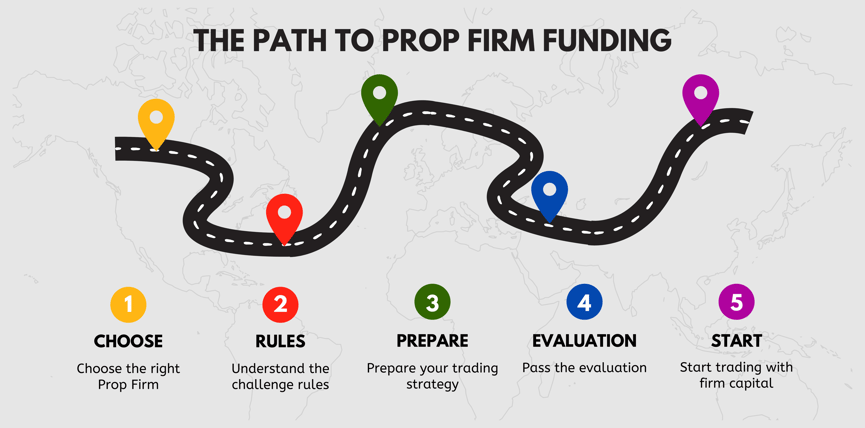

Quick Take: The Path to Prop Firm Funding
Choose the right prop firm
Understand the challenge rules
Prepare your trading strategy
Pass the evaluation
Start trading with firm capital
Let's dive into each step and unlock your trading potential!
What Is a Prop Trading Firm?
Before we jump into the how-to, let's clarify what we're talking about. A proprietary (prop) trading firm provides capital to skilled traders, allowing them to trade using the firm's money in exchange for a share of the profits.
"Prop firms are like talent scouts in the trading world. They're looking for skilled traders who can consistently generate profits." - John Doe, Professional Trader
Step 1: Choose the Right Prop Firm

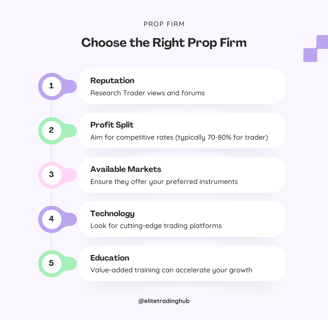
Not all prop firms are created equal. Here's what to look for:
🏆 Reputation: Research trader reviews and forums
💰 Profit split: Aim for competitive rates (typically 70-80% for the trader)
📊 Available markets: Ensure they offer your preferred instruments
🛠️ Technology: Look for cutting-edge trading platforms
📚 Education: Value-added training can accelerate your growth
Pro Tip: Don't just go for the highest profit split. Consider the overall package, including support and technology.
Red Flags to Watch Out For:
Unrealistic promises (No, you won't become a millionaire overnight)
Lack of transparency about terms
Excessive fees or hidden costs
Step 2: Understand the Challenge Rules


Most prop firms require you to pass a trading challenge or evaluation before funding you. Here's what you need to know:
Account size: Choose a challenge size you're comfortable with
Profit target: Typically 8-12% of the account size
Maximum drawdown: Often around 5-10% of the account
Time limit: Usually 30-60 days
Trading rules: Restricted hours, position sizing, etc.
Key Point: Read the rules carefully. A single violation can disqualify you, even if you're profitable.
Step 3: Prepare Your Trading Strategy
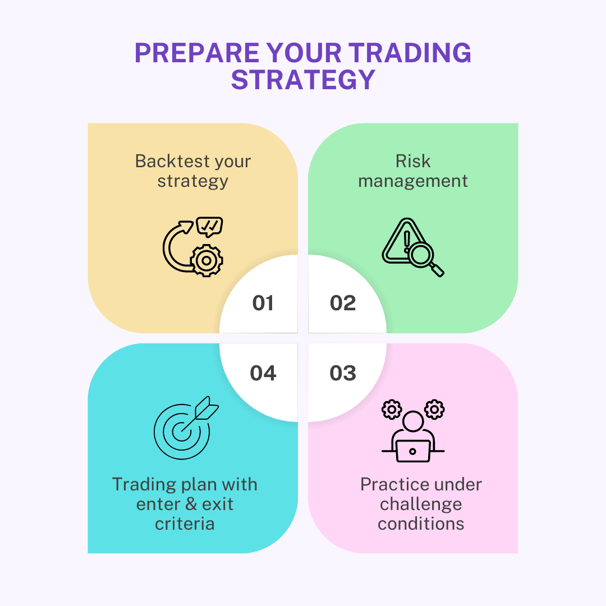

Now's the time to fine-tune your trading approach. Here's a checklist:
Backtest your strategy thoroughly
Adjust your risk management for the challenge rules
Practice on a demo account under challenge conditions
Develop a trading plan with clear entry and exit criteria
Remember, consistency is key. Prop firms value steady profits over risky home runs.
Step 4: Pass the Evaluation
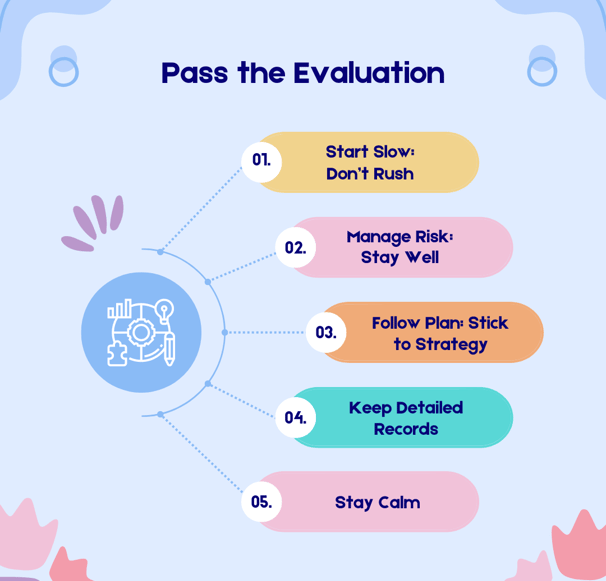

This is where the rubber meets the road. Here are some tips for success:
Start slow: Don't rush to hit the profit target
Manage risk: Stay well within the maximum drawdown limit
Follow your plan: Stick to your strategy, even on losing days
Keep detailed records: Track your trades and reasons for each decision
Stay calm: Treat it like any other trading day
Step 5: Start Trading with Firm Capital
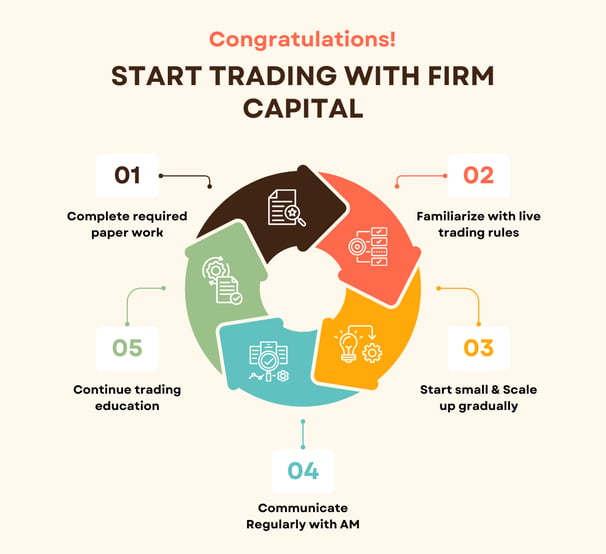

Congratulations! You've passed the evaluation. Now what?
Complete any required paperwork
Familiarize yourself with the live trading rules
Start small and scale up gradually
Communicate regularly with your account manager
Continue your trading education
Remember, getting funded is just the beginning. Maintaining your funded status is the real challenge.
The Bottom Line: Your Path to Prop Trading Success
Getting funded by a prop firm can be a game-changer for your trading career. It offers the opportunity to trade larger accounts and potentially earn significant profits. However, it's not a get-rich-quick scheme. Success in prop trading requires skill, discipline, and continuous learning.
Ready to take the next step? Start researching prop firms today and begin your journey towards funded trading. Remember, the best prop trading firm for you is the one that aligns with your trading style and goals.
What's your experience with prop firms? Drop a comment below and let's discuss!
Want more trading insights? Check out these related articles:
Remember: Trading involves risk. Always do your own research and consider seeking advice from a qualified financial advisor.
